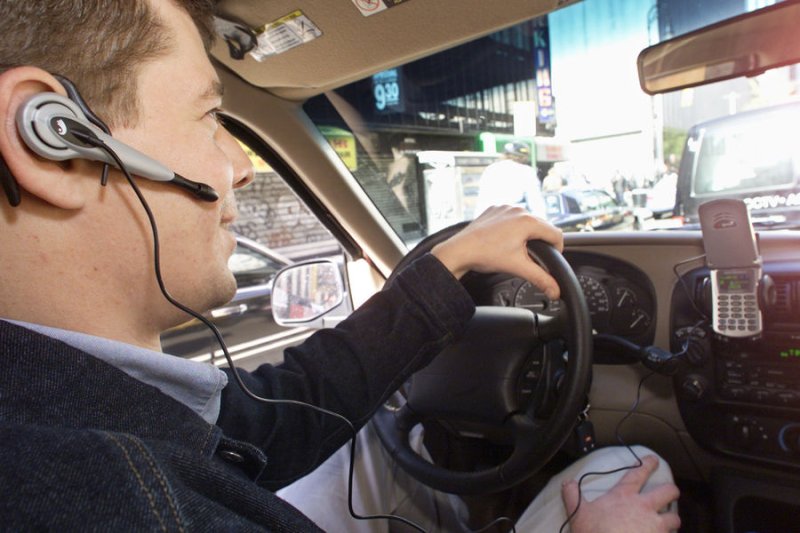WPX2001102602 - 25 OCTOBER 2001 - NEW YORK, NEW YORK, USA: Jim Urban of Brooklyn drives in New York City using a hands-free device, Friday, October 19, 2001. RLW/RW/Robin Weiner/WirePix UPI |
License Photo
TORONTO, Feb. 28 (UPI) -- Traffic accidents can happen because the brain has a hard time when both making a left-hand turn and talking on a hands-free cellphone, Canadian scientists say.
Researchers at St. Michael's Hospital in Toronto say most serious traffic accidents occur when drivers are making a left-hand turn at a busy intersection because it requires a huge amount of brain activation and involves far more areas of the brain than driving on a straight road or other maneuvers.
If drivers are also talking on a hands-free cell phone "that could be the most dangerous thing they ever do on the road," St. Michael's neuroscientist Tom Schweizer said.
The researchers tested healthy young drivers operating a driving simulator located inside a high-powered functional MRI, allowing the scientists to map in real time which parts of the brain were activated or deactivated as the simulator took them through increasingly difficult driving maneuvers.
The researchers found making a left-hand turn required the most brain involvement.
They also reported that when the drivers were also involved in a conversation, the part of the brain that controls vision significantly reduced its activity as the part that controls monitoring a conversation and attention was activated.
"Visually, a left-hand turn is quite demanding," Schweizer said. "You have to look at oncoming traffic, pedestrians and lights, and coordinate all that. Add talking on a cell phone, and your visual area shuts down significantly, which obviously is key to performing the maneuver."
"This study provides real-time neuroimaging evidence supporting previous behavioral observations suggesting that multitasking while driving may compromise vision and alertness. 'Hands free' not does mean 'brains free,'" he said.















